In which a writer starts to receive mysterious and increasingly menacing postcards from an apparent stranger. He asks his friends what to do. He goes to the police. And then it all becomes clear.
L P Hartley
Leslie Poles Harltey was born in Cambridgeshire in England in 1895 and died aged 76 in London England.
L P was educated first at home and then a Preparatory School before going to Harrow School–— a private school in North London, where he had won a scholarship.
His father was not particularly high class, he was a solicitor and owned a brickyard.
After Harrow, L P went to Oxford to study (or ‘read’) as they say at Oxbridge, Modern History. This was in 1915. In 1917 he joined the army. I think he was conscripted. He was commissioned as an officer in the Norfolk Regiment but never saw active service due to having a weak heart.
He was a famous hypochondriac in fact and had what we would call these days a health anxiety. In 1922 he suffered a nervous breakdown and soon after this started spending long periods in Venice in Italy where he owned his own gondola.
He had a particular male friend David Cecil. And this was in a time when being gay was illegal and punishable by time in prison so gay people did not come out. It was believed that he was gay.
After the war he returned to complete his degree Oxford, and even at that time he had an ambition to be a writer. His first published work was in Oxford Poetry. And he became editor of Oxford Outlook. He was a lifelong friend of Cynthia Asquith who, as we know, was a famous author of ghost stories and editor of the Pan Horror series for a while.
He mixed in aristocratic circles after graduation and worked as a book reviewer, but his own work did not initially find success and he was depressed.
In 1924, his first volume Night Fears was published and it was well received critically and his work was supported by many influential writers including Cynthia Asquith.
He had moderate to good success with later novels, but his major success was with The Go-Between.
He was named after Virginia Woolf’s father. Hartley as a youngster was a fan of Edgar Allen Poe. He named his influences as Nathaniel Hawthorne, Henry James and Emily Bronte, but I find his straightforward style different from all of these.
His most famous quote is possibly:
The Past Is Another Country. They do things differently there.
W S
This is a cracking little story and very simple in structure. We have a writer, and like all writers, he is neurotic about his work. He has had some success, but still harbours doubts.
Then he starts getting postcards from someone with the same initials as himself, though he doesn’t notice the initials as being significant at first.
The story uses the ticking clock technique of modern thrillers. Danger is approaching step by step getting closer and closer: think Die Hard. Though if you didn’t know British geography you might not know that Forfar is distant and Coventry close to the West Country town where Walter Streeter lives. Nevertheless, each postcard brings the doom closer.
There is some nice foreshadowing. The postcard writer keeps promising a hearty handshake and it is only at the end we are told the character William Stainsforth has only one hand. The comment that the author doesn’t give any depth to his characters is also a piece of foreshadowing.
We are told near the end that the character is a policeman in the story. This is after the policeman has arrived outside to keep guard. The twist is in the phone call from the real police who apologise for not sending an officer. Who then is the policeman outside?
I wonder if it would not have been more effective if we had known that the character was a policeman but it might be hard to include that snippet without giving the game away too early.
The secret with a twist is to place the information in plain sight but in a way that it doesn’t feel significant to the reader. Then when it is revealed at the end, the significance is seen. If you unveil the information at the end, the reader is not satisfied and it can seem simply like an info dump to tie up the loose ends.
We have spoken before
Dramatic Irony is where the reader knows more than the character.
Unreliable Narrator is where the narrator knows more than the reader.
Suspense is when narrator and reader are both in the dark.
# If You Appreciate The Work I’ve Put In Here
[Become A Patreon](https://www.patreon.com/barcud) For Bonus Stories
Or [buy me a coffee](Ko-Fi) , if you’d like to keep me working.
](Music) by The Heartwood Institute

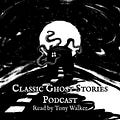




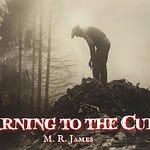

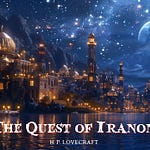
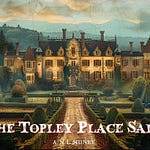


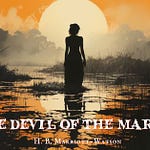

W S By L P Hartley